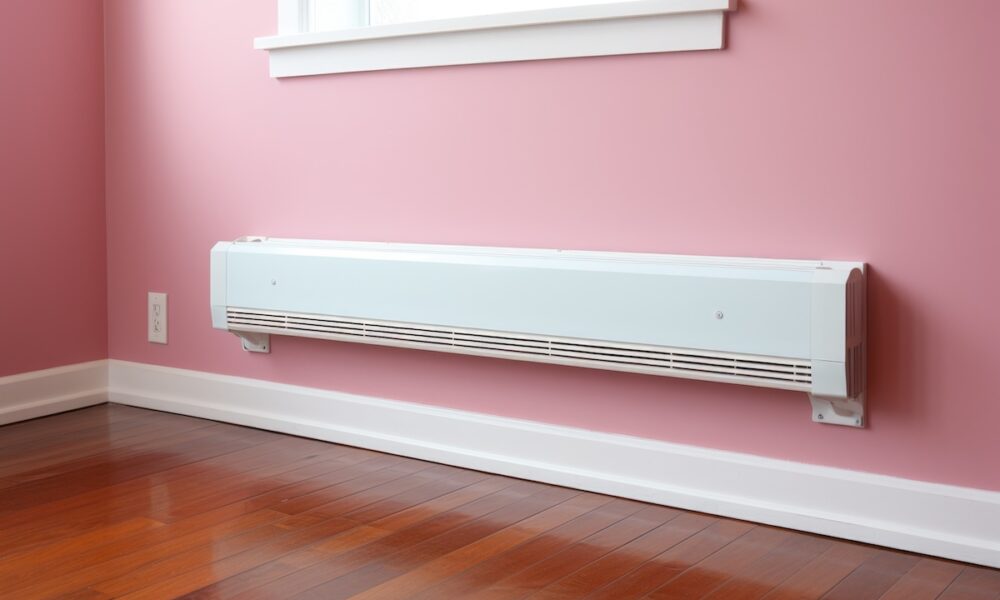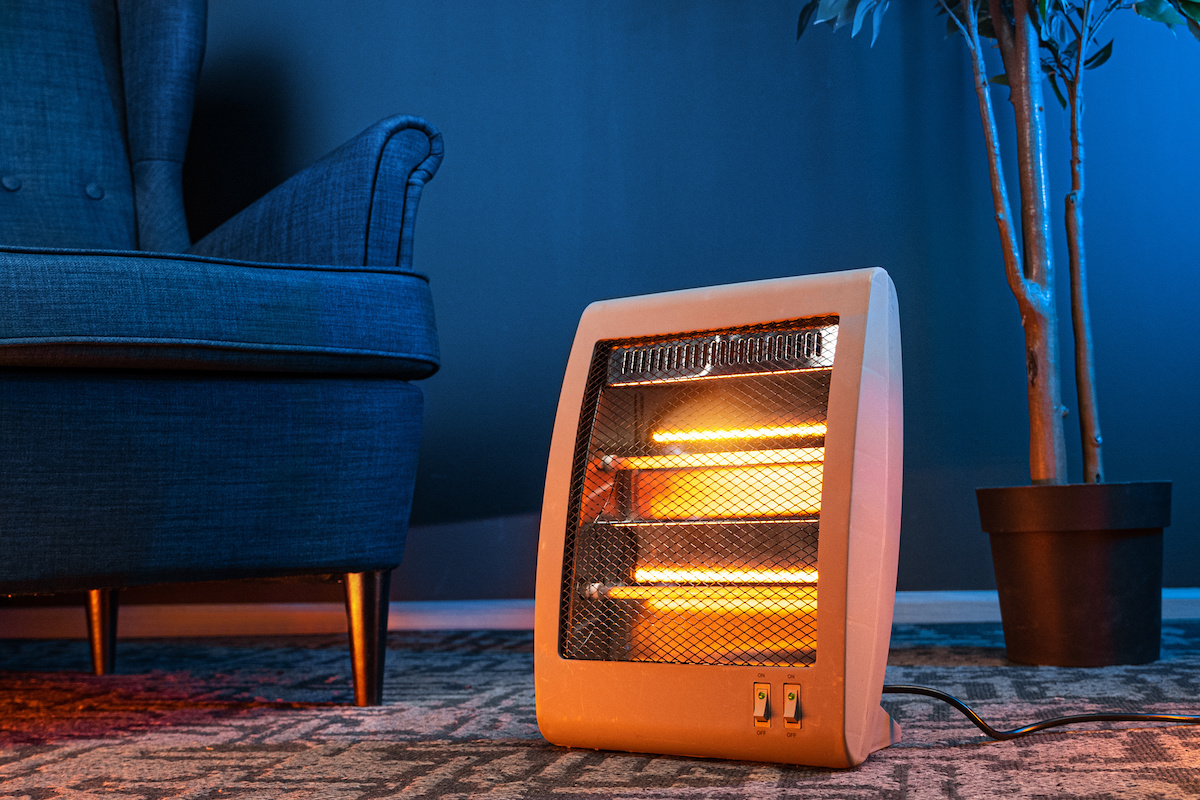
During winter in the Pacific Northwest, nothing compares to the cozy warmth of a well-heated home. Electric heaters, ranging from baseboard units to portable space heaters, offer a convenient solution for keeping your living space comfortable. However, the installation of these heaters isn’t as simple as just plugging them in. One key aspect often overlooked is the need for a dedicated electrical circuit. If you’re wanting a warmer home for the remainder of winter, here is what you need to consider.
Why Do You Need Dedicated Circuits for Electric Heaters?
Electric heaters draw significant power–for example, space heaters use 1,5000 watts. When they share a circuit with other appliances, there’s a risk of overloading. So, if you are running an air fryer and a space heater at the same time, your breaker might trip.
Not only do you experience tripped breakers, but this overloading of power leads to potential hazards like electrical fires. A dedicated circuit ensures that your heater has its exclusive power supply, minimizing risks and enhancing efficiency.
Let’s talk about each type of electric heater and why it’s important to consider a dedicated circuit.
Popular Types of Electric Heaters and Their Circuit Requirements
What are the most common types of electric heaters? Here in Seattle, many homeowners turn to electric heaters such as cadet, baseboard, and space heaters to stay warm.
About Cadet and Baseboard Heaters
Cadet heaters and baseboard heaters have gained widespread popularity due to their remarkable efficiency and user-friendly design. These heaters work by converting electricity into heat, which is then radiated into the room to provide consistent and comfortable warmth. This makes them an excellent choice for maintaining a steady temperature in homes, especially in areas that experience prolonged cold weather.
Do You Need Dedicated Circuits for Cadets and Baseboard Heaters?
The primary reason these heaters require dedicated circuits stems from their operating pattern. Unlike other appliances that you use intermittently, cadet and baseboard heaters run for extended periods–particularly during the peak of winter.
The continuous operation means they draw a steady and significant amount of electrical power over long periods of time.
Meanwhile, when a heater shares a circuit with other appliances, like a television or a microwave, the combined load can exceed the safe capacity of the circuit. This overloading not only poses a risk of tripping the circuit breaker but also increases the danger of electrical fires.
Dedicated circuits make sure these heaters can operate independently and without the risk of overloading.
Important Note: Not All Cadet and Baseboard Heaters are Created Equal
Cadet and baseboard heaters come in various sizes and wattages, catering to different room sizes and heating needs. Consequently, the circuit requirements for each heater may vary. A smaller unit designed for a compact room may require a different circuit compared to a larger model intended for a spacious area.
So, how do you make sure that these heaters run safely and at peak performance? The key is to match the dedicated circuit to the specific requirements of the heater.
This typically involves considering the wattage of the heater and ensuring that the circuit can provide adequate power without being overloaded.
In many cases, a standard 120-volt circuit might suffice for smaller units, while larger models may necessitate a 240-volt circuit to operate efficiently.
Getting Help with Professional Installation for Safety
Installing dedicated circuit boards for cadet and baseboard heaters is complex. The safest option is to call us at Dadz, where we can assess the electrical needs of your specific heater model. This will ensure that a dedicated circuit is installed in compliance with local electrical codes and standards.
Space Heaters
Space heaters are a popular choice for many due to their portability and ability to provide quick, targeted heat. They are especially useful in situations where central heating is insufficient or when heating individual rooms is more cost-effective. Unlike their fixed counterparts, space heaters can be moved from room to room, offering a flexible heating solution.
Unique Power Demands of Space Heaters
Space heaters, particularly those designed for larger rooms, can draw a significant amount of power. This is because they rapidly heat up a space, requiring a high level of energy to do so effectively.
The power demand is not constant and can vary greatly depending on the heater’s setting and the ambient temperature of the room.
Like other heating devices, if a space heater shares a circuit with other high-power appliances, the risk of overloading that circuit increases. This is particularly concerning with space heaters, as they are often used in addition to other appliances, like lights, computers, or entertainment systems. Overloading can lead to circuit breakers tripping, disrupting power not only to the heater but also to other devices on the same circuit.

The Case for Dedicated Circuits for Space Heaters
Given their high power consumption, especially for models with larger heating capacities, having a dedicated circuit for a space heater is a wise decision. A dedicated circuit ensures that the heater has enough power to operate effectively without risking overloading. This is especially important in scenarios where the space heater is used frequently or for prolonged periods.
Another reason to consider a dedicated circuit for space heaters is the longevity of the device itself. Space heaters with motors, like fan heaters, can wear out more quickly if they are subjected to inconsistent power supply or frequent power fluctuations. A dedicated circuit can provide a stable power supply, thereby potentially extending the life of the heater.
Safety Considerations for Space Heaters
We can’t stress enough that you need to stay safe when using a space heater. These devices are often placed in living areas, and the risk of fire from an overloaded circuit or a malfunctioning heater is a serious consideration.
With a dedicated circuit, the likelihood of electrical mishaps is significantly reduced. Moreover, it allows for better control and monitoring of the heater’s power usage, contributing to a safer heating solution.
Why Consider a Dedicated Circuit for Every Electric Heater
When it comes to electrical safety, this isn’t the time to wing it. Consider a dedicated circuit for the following reasons:
Safety and Efficiency
Safety is always the top priority with electrical appliances. That’s why we very rarely ever encourage you try electrical upgrades on your own. It’s dangerous!
A dedicated circuit for your electric heater not only safeguards your home against electrical hazards but also ensures that the heater operates at peak efficiency without being affected by the power demands of other appliances.
Longevity of Your Heating System
Heaters on dedicated circuits tend to have a longer lifespan. The consistent and stable power supply reduces wear and tear, especially in space heaters, where the motors are prone to wearing out with fluctuating power levels.
Peace of Mind
With a dedicated circuit, you can use your electric heater without worrying about tripping the circuit breaker or causing electrical issues in other parts of your home. This peace of mind is invaluable, especially during cold seasons when you rely heavily on your heating system.
Call Dadz for a Helping Hand with Dedicated Circuit Installation
Whether you want to use a cadet, baseboard, or a portable space heater, a dedicated circuit is essential for safety, efficiency, and longevity. Remember, consulting Dadz is always recommended. Serving Seattle communities for 30 years, trust us to lend a helping hand. Call us today!